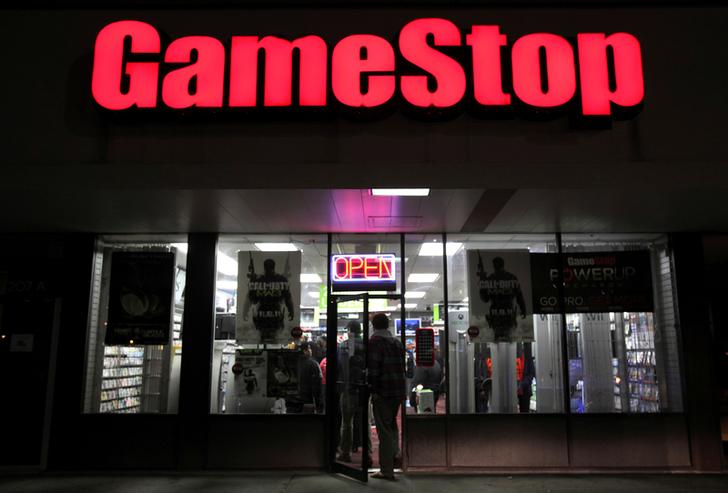(Reuters) – Retail traders scored against professionals on Wednesday as hedge funds Citron and Melvin retreated with heavy losses on short positions in GameStop in the week-long battle between Wall Street and Main Street, with more calling for scrutiny of anonymous stock trading posts on social media.
Funds sold long positions in stocks to pay for the losses, which sparked a 1% slide in Wall Street’s main indexes.
The battle started when famed short seller Andrew Left of Citron Capital bet against GameStop and was met with a barrage of retail traders betting the other way. The short squeeze has been so sharp that funds were selling long positions in stocks to pay for the losses [.N]
“Because the rules are changing, people don’t like that,” technology investor Chamath Palihapitiya told CNBC. “We are moving to a world where ordinary folk have the same access as professionals and can come to the same conclusion or maybe the opposite. The solution is more transparency on the institutional side not less access for retail.”
Citron has been a target for some on Reddit’s “WallStreetbets” thread, where posts helped drive gains for several niche stocks. Left said in a video post that Citron abandoned its bet against GameStop shares after the video game retailer’s value soared almost tenfold in a fortnight.
“I have respect for the market,” Left said in the post.
Melvin Capital Management closed out its short position in GameStop on Tuesday after taking a huge loss.
The Goldman Hedge Industry VIP ETF, which tracks hedge funds’ most popular stocks, has fallen for five straight sessions, its longest losing streak since February 2020.
Commentators and lawyers called for scrutiny of the moves. Nasdaq chief Adena Friedman said exchanges and regulators should watch whether anonymous social media posts could be driving “pump and dump” schemes.



